Postpartum Diet:
The Ultimate Ayurvedic Guide
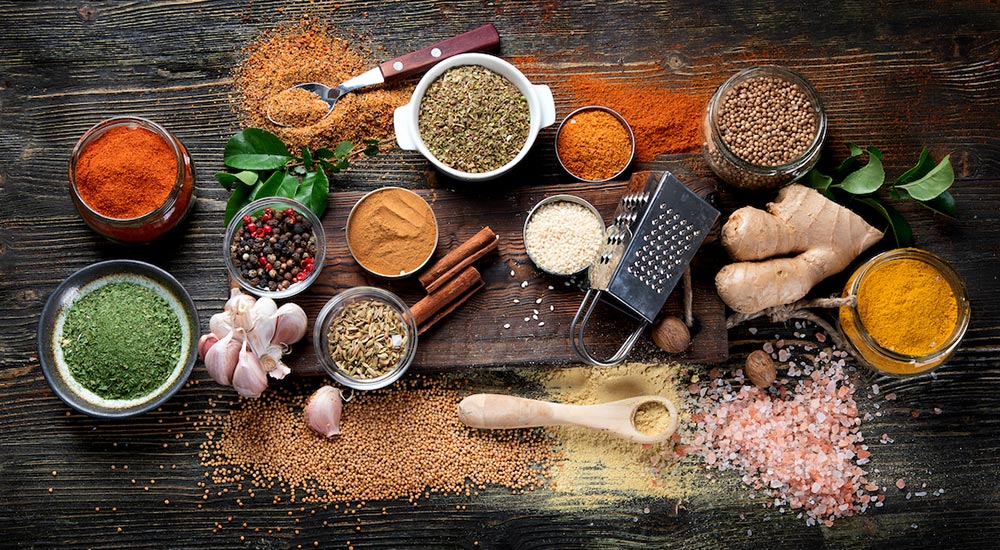
The single most important step you can take to have a successful postpartum recovery, is to follow a healing postpartum diet. During this very delicate period of postpartum transition, it is more important than ever to eat healthy. It not only affects your recovery directly, but it also affects the health and well-being of your little one.
You want your milk to be abundant, digestible and full of nutrition, right? You don’t want your baby to go through the relentless pains of baby colic, do you? There is a science to achieving this, and salad is not on the menu.
Unfortunately, postpartum care has not been given the importance it deserves in our modern healthcare system. Even among the health conscious, there isn’t a lot of awareness on how to eat a truly healthy postpartum diet. Eating casseroles out of the freezer isn’t going to work out well for you, I promise. Lucky for us, Ayurveda has the answers we are looking for. In this guide, I have outlined all of the necessary guidelines of a healing postpartum diet, follow them and enjoy postpartum bliss.
Digestion

Having strong digestion is the foundation of strong postpartum recovery and digestible breast milk. This takes effort to achieve and doesn’t just happen by itself. Birthing expends a tremendous amount of energy from the body, and consequently, the digestion becomes weak. On top of that, it takes time for your displaced organs to regain their pre-pregnancy condition, which adds another degree of sensitivity to your digestion.
In reality, your digestion will be almost as sensitive as your newborns’. Just as you would never feed your baby frozen pizza, you should steer clear of such foods in your postpartum diet as well.
Important Rules for Digestive Health
- Allow time between meals for proper digestion
- 3 hours for most foods
- 30-45 minutes for fruits
- Don’t drink too much liquid with your meal.
- Only drink warm fluids during your postpartum recovery.
- Never use ice.
- Avoid carbonated beverages.
- Practice mindful eating.
Food Combining
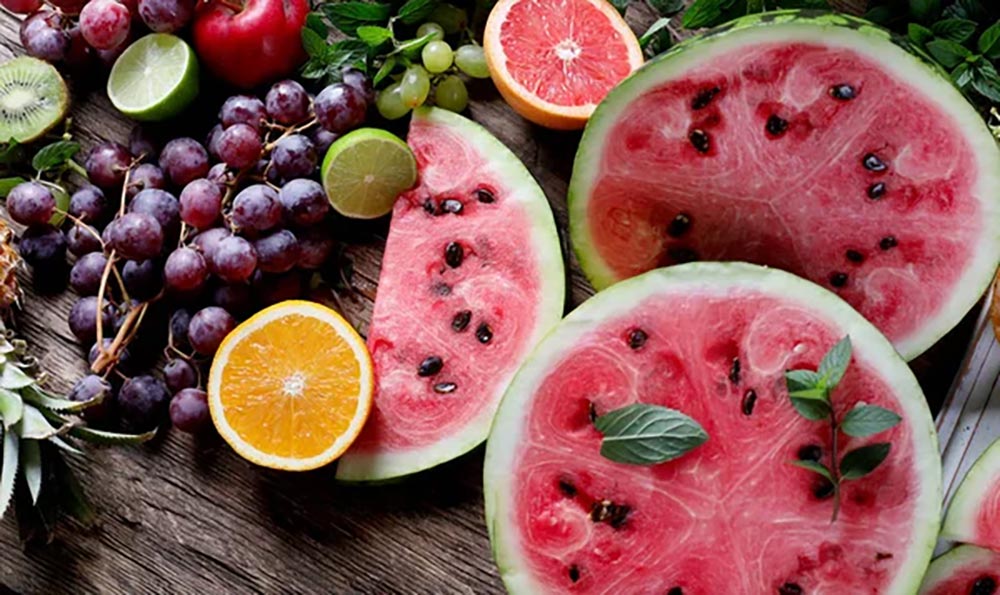
Proper food combinations is an important consideration in maintaining postpartum digestive health. Not all foods digest at the same rate. Take watermelon and hot dogs for example (summer barbecue, yikes!). Watermelon digests in about 20 minutes, whereas hot dogs take about 3 hours or longer. Guess what happens in your stomach when you mix these two foods together? Gas, bloating and toxic buildup. If your body has a hard time processing foods, your milk will also be hard to digest for your newborn, which can easily snowball into colic. Here are some basic food combining rules:
-
Eat fruit by itself – allow 45 minutes digestion before eating other foods, and allow 3 hours after meals before eating fruit
-
Milk is best by itself – it can work OK with sweet grains, but stay away from mixing it with salt.
-
Don’t mix meat, eggs and dairy – different types of animal protein don’t mix well together and should be eaten separately.
-
Wait – AT LEAST 2 hours between eating meals, 3 hours is ideal.
When we don’t pay attention to our digestive strength after birth, and eat heavy, hard to digest foods, don’t follow proper food combining rules, or don’t allow enough digestion time between meals, we will start to accumulate toxins in our digestive tract.
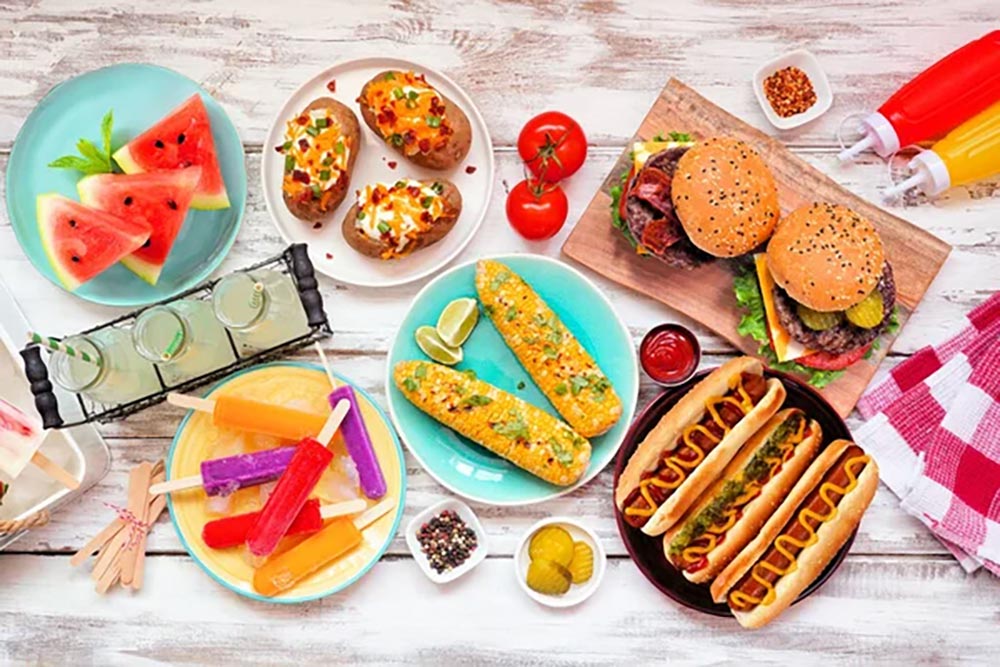
In the short term, this can cause gas, bloating, constipation and a thick white coating on your tongue. If you are breastfeeding, it can also cause gas, bloating, and colic for your baby.. In the long term, the accumulation of toxins in the digestive tract will inevitably accumulate enough that it will spill over and spread to weak systems in your body, eventually leading to disease.
By focusing on cultivating strong digestion after birth, you will create a solid foundation for your postpartum health and recovery, as well as producing a high-quality, digestible breast milk supply for your baby, leading to better health and recovery outcomes for you and your breast-fed baby.
Healthy Oils
You can’t eat too much healthy fat postpartum. Throughout the process of birth and nursing, there is a tremendous amount of fluid loss, and therefore the tissues become dry and depleted. It is very important to saturate the body with healthy, postpartum appropriate oils on the inside and out (think postnatal oil massage). Eating a significant amount of healthy fats in your postpartum diet rejuvenates your tissues, promotes healthy bowel movements, soothes the emotions and promotes healthy digestion.
Ghee

Also known as clarified butter, ghee is a pure oil that is made by simmering all of the water out of unsalted butter and straining it through fine cheesecloth. It has no lactose, and is therefore suitable for those who are lactose intolerant. Ghee is considered a potent healing medicine in Ayurveda, and is known to balance hormones, lubricate connective tissue and improve digestion, as well as nourish the immune system, vital life force and cellular intelligence. Because of its multiple healing properties, ghee is the preferred postpartum oil. Don’t be shy to add heaping tablespoons to all your meals! Use caution with high cholesterol, candida and obesity.
Unrefined Sesame Oil
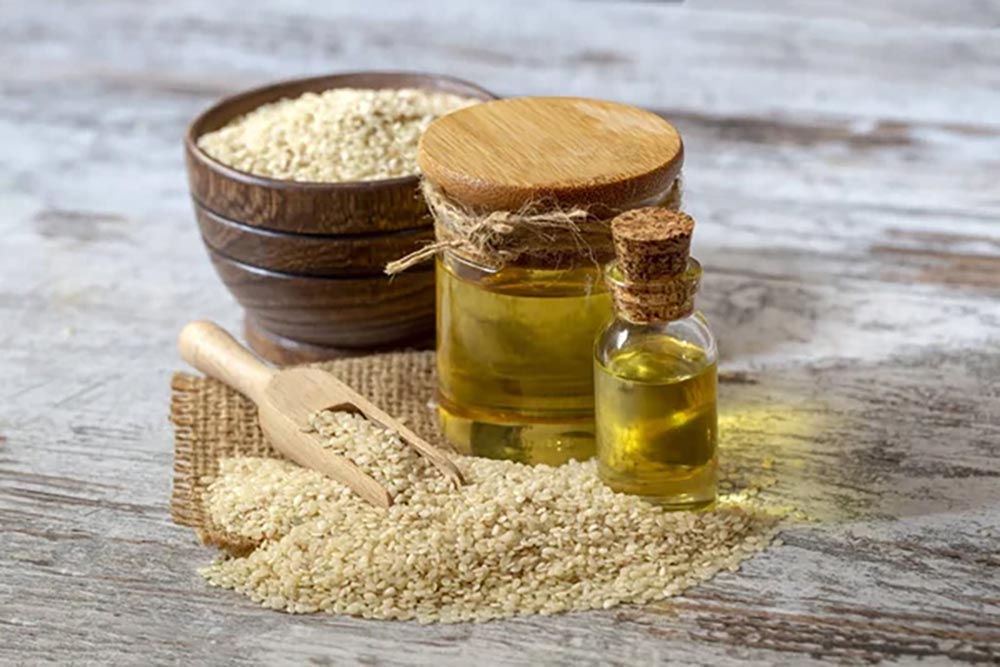
Unrefined sesame oil is a great alternative to ghee for vegans or for those who ghee is not suitable. Sesame oil is heating, penetrating and full of nutrients. It soothes the nerves and works wonders at improving strength after birth. I recommend using unrefined sesame oil, in order to access all of the benefits this magical seed has to offer.
Healing Foods for the Postpartum Diet
Each food has its own intrinsic characteristics like heavy or light, dry or moist, or have a heating or cooling effect on the body, for example. Their taste could be primarily sweet, sour, salty, bitter, pungent or astringent.
Foods that promote postpartum healing have specific qualities that build tissue, bring internal warmth, as well as promote strong digestion, groundedness and vitality. Review the list below to better understand the qualities of foods that promote postpartum rejuvenation.
Qualities of Foods that Promote Postpartum Digestion & Rejuvenation
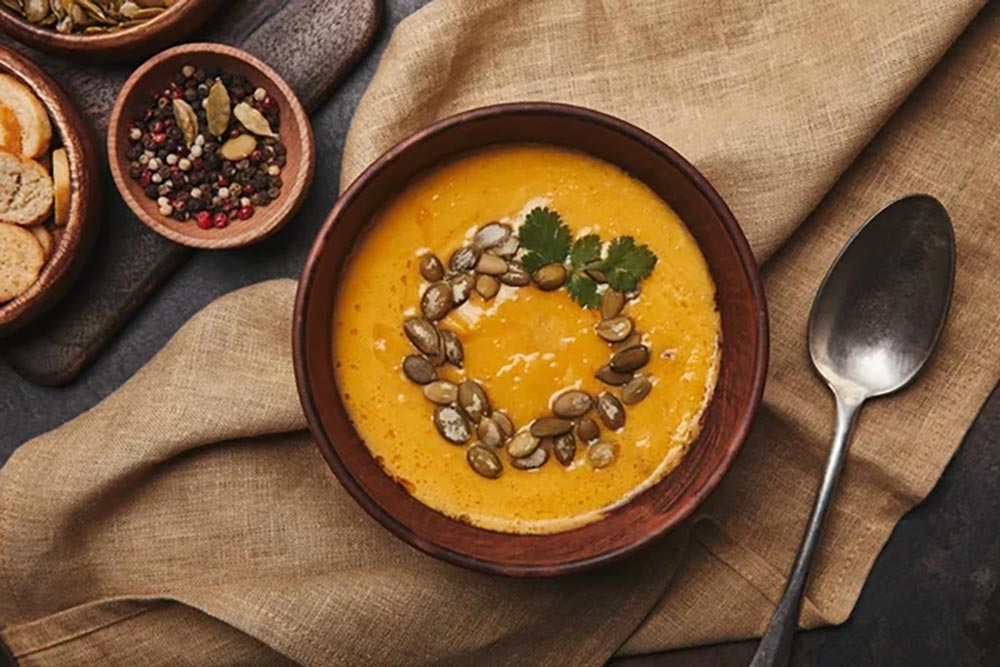
-
Sweet/sour/salty tastes – Foods with these tastes build tissue and promote rejuvenation
-
Soft/soupy/oily – Focusing on foods with these qualities will ensure a certain level of digestibility
-
Always fresh – Eating frozen, canned and leftover foods will be difficult to digest and will not promote postpartum health
-
Vegetarian – Meat holds the energy of heaviness and decay. For this reason, it is difficult on digestion and rejuvenation. If you are not comfortable eating a vegetarian postpartum diet, than focus on chicken and fish (bone broth) soups
-
Well spiced – Some people believe that you need to eat a bland postpartum diet. Nothing could be further from the truth. Although it is important to stay away from hot chilies, onion and raw garlic, most seasonings stimulate digestion and some even promote lactation!
-
Well cooked – Food should be warm and cooked thoroughly with extra water and oil. Sweet fruits can be taken raw.
-
Iron-rich – Dark sugars like molasses, maple syrup and unprocessed cane and coconut sugars give energy, as well as build the blood after birth. Dates, figs, tamarind and red grapes are also good examples of iron-rich foods
If you would like a complete list of healing foods for your postpartum diet, as well as 70 delicious recipes including teas, drinks, snacks, desserts, as well as meals for breakfast, lunch, and dinner, buy my cookbook: Mama’s Menu: Ayurvedic Recipes for Postpartum Healing.
Foods to Avoid After Birth
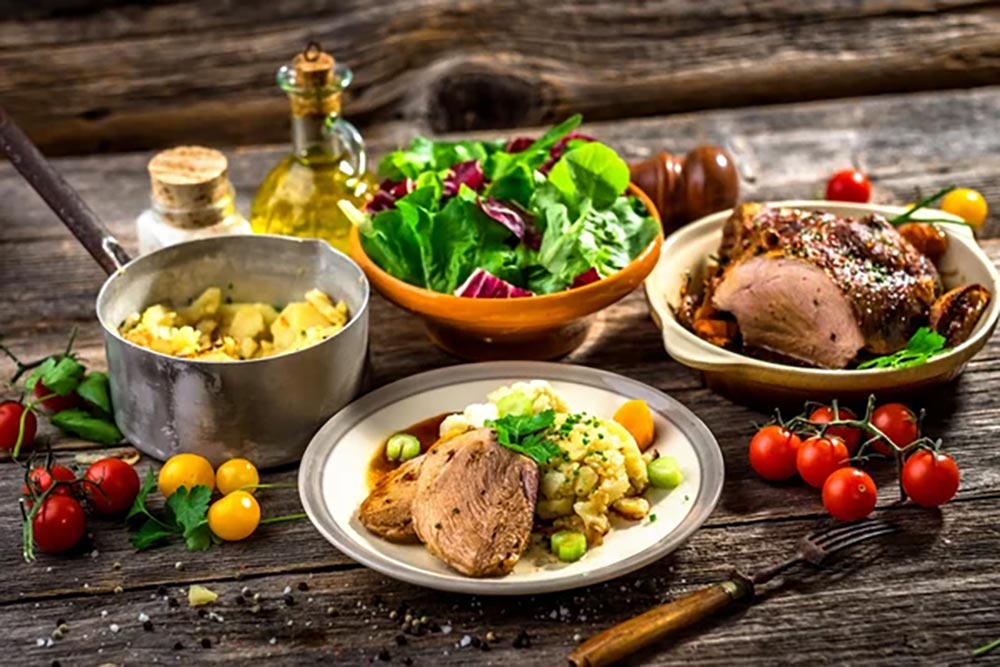
Just as there are foods that promote postpartum rejuvenation, there are also foods that can obstruct the postnatal healing process. Below is a list of foods to avoid after birth.These foods are difficult to digest and aggravating to your delicate postpartum digestion. Best to avoid them for at least 6 weeks.
-
Dry foods – dried fruit, crackers, rice cakes and potato chips
-
Cold/raw foods – salads, sprouts, cold drinks, cold smoothies and ice cream
-
Fermented foods – leavened breads, vinegar, miso, tempeh, sauerkraut, soy sauce, pickles
-
Chili Peppers – (small amounts of cayenne is OK)
-
Brassicas – Cabbage, cauliflower, broccoli, brussel sprouts, mustard
-
Nightshades – Eggplant, peppers, potato, tomato
-
Mushrooms – stay away from fungi in general
-
Frozen foods & Left-overs
-
Leavening Agents
-
Chocolate
-
Caffeine
-
Red meat
-
Alcohol
-
Carbonated beverages
The 4 Phases of the Ayurvedic Postpartum Diet
Days 1-3: Cleansing & Digestion
For the first 3 days after birth, your body is focusing on cleansing. Your milk hasn’t come in yet, and your body is focused on flushing out your uterus from the birth. Now is the time to use extra turmeric and some pungent spices to support cleansing and stoking the digestive fire.
Your food should be very well cooked, with lots of ghee and digestive spices. Focus mainly on porridges, puddings, thin soups and hot teas. It is better to limit vegetables for the first few days because of their inherent astringency.
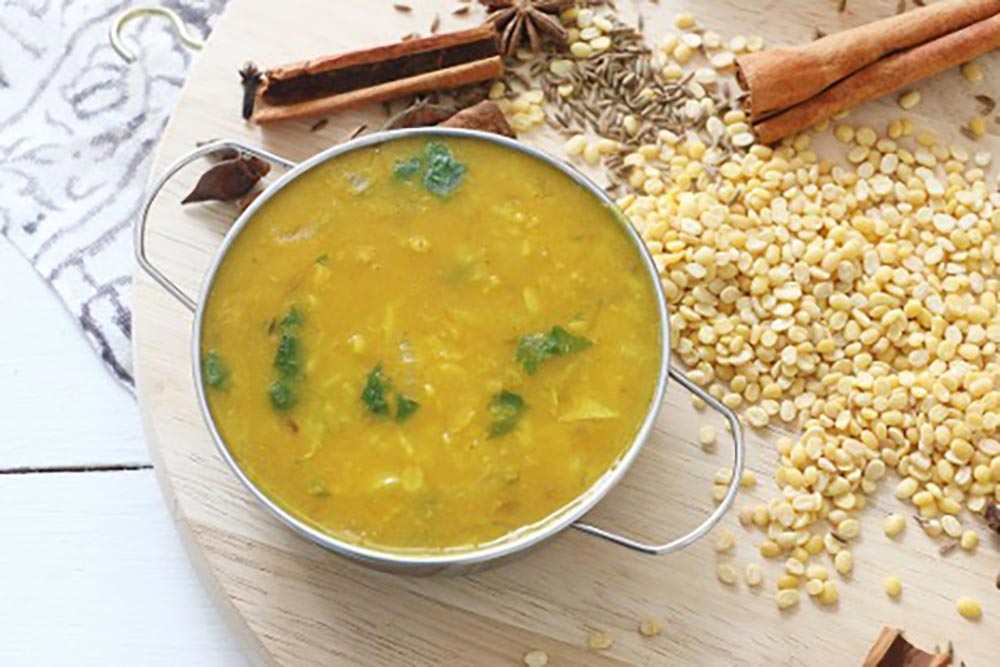
Days 4-10: Digestion & Lactation
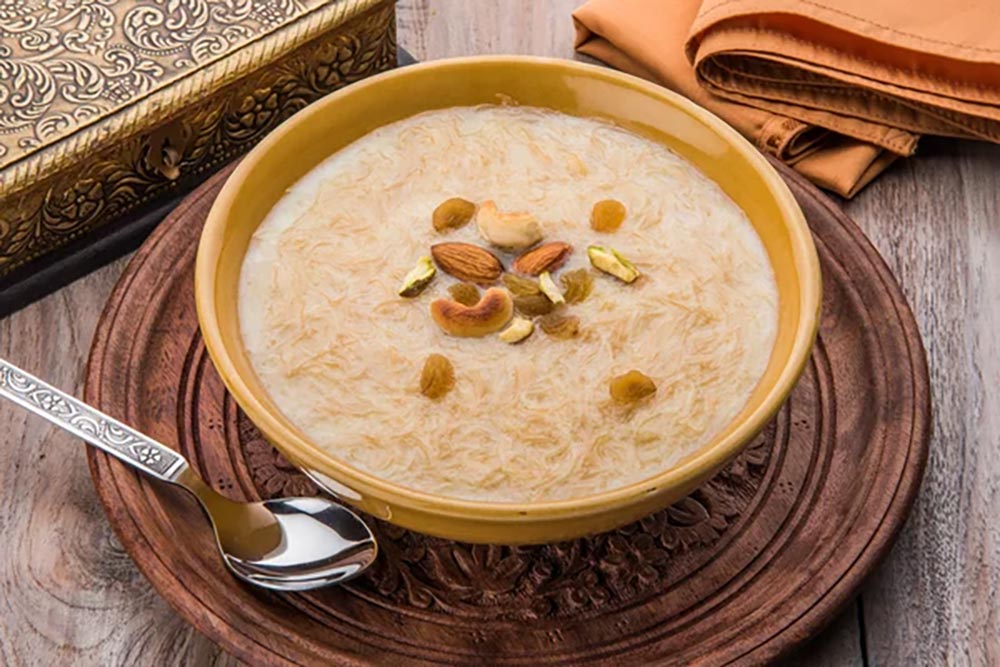
Once your milk comes in, the focus shifts away from cleansing, and moves into cultivating digestion and building your milk supply. Tone down the use of turmeric, as it is cleansing in nature. Continue to eat an abundance of ghee and digestive spices in your meals. The focus is still on soupy foods. Vegetables can be introduced with caution. Creamy drinks and desserts with adequate spices can be enjoyed as well.
Once your milk comes in, the focus shifts away from cleansing, and moves into cultivating digestion and building your milk supply. Tone down the use of turmeric, as it is cleansing in nature. Continue to eat an abundance of ghee and digestive spices in your meals. The focus is still on soupy foods. Vegetables can be introduced with caution. Creamy drinks and desserts with adequate spices can be enjoyed as well.
Days 11-21: Lactation & Rejuvenation
By this point in your postpartum recovery, your digestive fire should have strength. While still supporting digestion, the focus now shifts toward lactation and rejuvenation. Food gets more interesting at this stage, and while you should still continue eating warm soups and stews, you have now graduated to having some of your food on a plate and not just in bowls all the time! Vegetables are welcome at this stage, as well as fresh, unfermented cheese, soaked nuts and unleavened flatbreads.
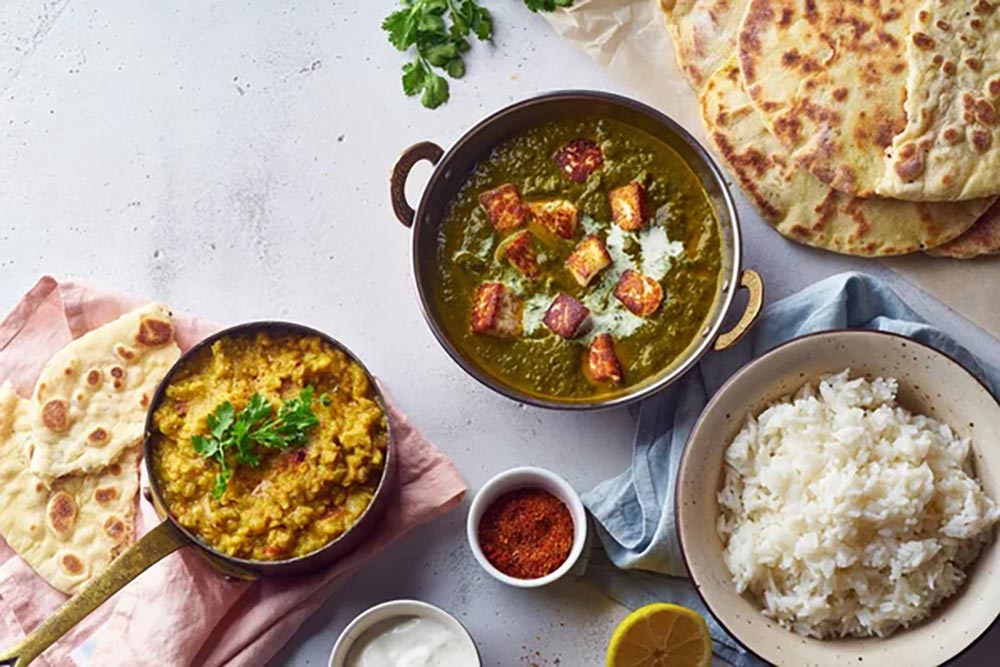
Days 21-42: Rejuvenation
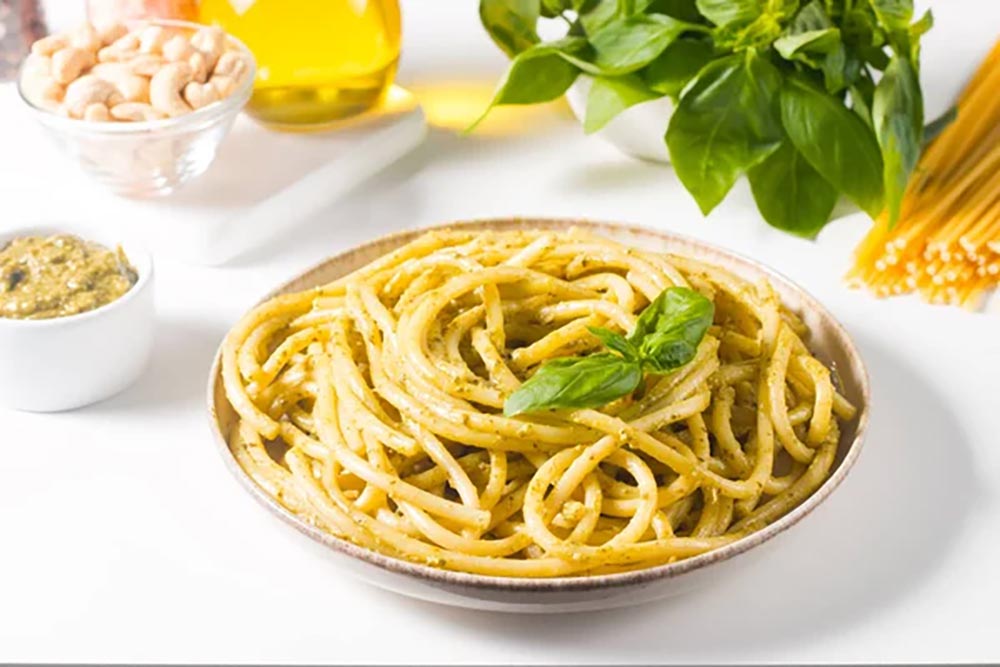
The final phase of your postpartum recovery is solely focused on your rejuvenation. By this phase, you should have strong digestion and a great breast milk supply. Now is the time to focus on making sure you are eating to rebuild your strength and vitality. Your postpartum diet can now expand to a larger variety of foods, which can each hold their own identity on your plate! Enjoy more complex homemade foods such as pasta, whole beans, creamy vegetable stir frys and even hummus.
The final phase of your postpartum recovery is solely focused on your rejuvenation. By this phase, you should have strong digestion and a great breast milk supply. Now is the time to focus on making sure you are eating to rebuild your strength and vitality. Your postpartum diet can now expand to a larger variety of foods, which can each hold their own identity on your plate! Enjoy more complex homemade foods such as pasta, whole beans, creamy vegetable stir frys and even hummus.
Transitioning Away from your Postpartum Diet

After your 4th trimester is complete, it is important to gradually transition back to a regular diet. By slowly re-introducing more complex foods, you give your digestive fire time to build its strength and ability to handle the complex foods you have been patiently avoiding. If you just go back to eating pizza and ice cream right away, it’s likely your digestion and breast milk will be compromised.
In order to maintain a strong digestive fire when transitioning back to a regular diet, you need to stick with your digestive protocol. Drink some digestive tea, remember your food combining rules, and make sure you are allowing time in between meals for complete digestion.
The best way to successfully transition back to a regular diet, is by introducing one new food at a time and observe how your body responds to it. By watching your diet closely, you will learn what foods, if any, you may need to continue avoiding for the time being. This conscious practice of observing dietary changes and effects will serve you and your little one well into the future.
The information presented here is intended to empower you with the essential information needed to eat a healthy and restorative postpartum diet. Another important key to success is to plan in advance. I recommend buying ingredients before the birth, gathering recipes in advance, and asking for the support you will need with meal preparation and beyond. With all of these aspects in place, I’m sure you and your newborn will have a happy and healthy postpartum recovery.
Ready to take your postpartum diet to the next level of healing?
Mama's Menu: Ayurvedic Recipes for Postpartum Healing will guide you step-by-step through each phase of your postpartum diet with carefully curated recipes that are both delicious and optimized for your postpartum recovery and breast milk production. Buy your copy now!
Learn the
Natural Recovery Method
Do you....
want to learn why you should learn about postpartum recovery before giving birth?
Get it already?
 Let’s Connect
Let’s Connect 
Connect with me on social media for postpartum recovery and healing tips.


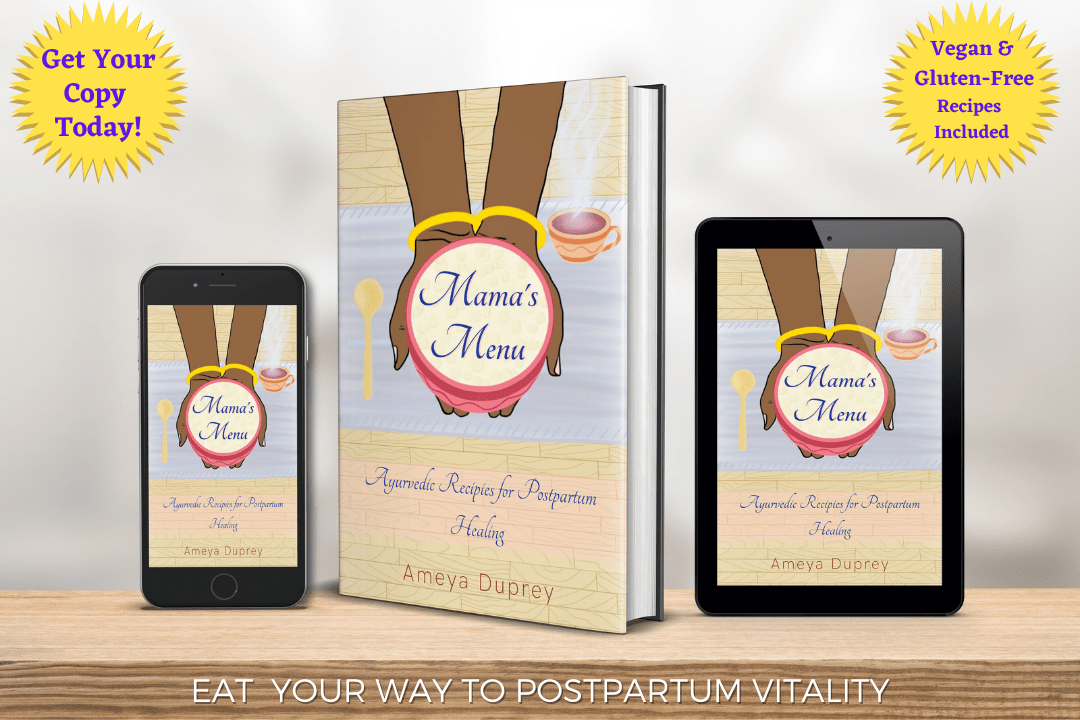
0 Comments